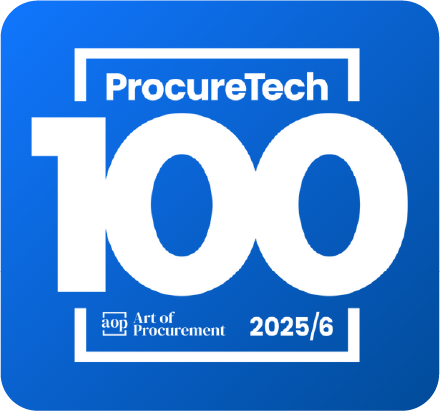To what extent can digitalization support procurement teams in identifying and driving new cost savings to increase competitiveness in volatile markets? Our Co-Founder and Managing Director, Nicolas Neubauer, addressed this question in a workshop at the Automotive Masterminds, the conference for representatives from the automotive industry. In accordance with the agile workshop method "World Café", 4 different tables each dealt with and discussed a key question on the overarching topic of "Procurement in the era of uncertainties". In addition to Nicolas Neubauer from ivoflow, Daniel Bung (BMW), Robert Suvak (Dräxlmaier) and Volker Popp (SAP) also moderated a table.
Challenges in procurement The interdisciplinary workshop brought together procurement managers, managing directors and software providers, as well as engineers and sales staff, in order to first identify the challenges on the market: Fast and dynamic markets, trade wars and geopolitical factors are making it increasingly difficult to focus on one's own core tasks – that was the tenor. At the same time, the demands placed on automotive groups by Tier 1 suppliers are increasing. Not only does the complete CO2 balance in the supply chain have to be verified, but a granular breakdown of costs is also expected. Suppliers are also demanding more commitment when it comes to volume call-offs by OEMs.
More transparency and synergies in the automotive industry What is the future of procurement? What changes are needed in the market? "The mindset in the industry needs to change. Cooperation and communication between OEMs and suppliers must become more transparent," says Nicolas Neubauer, summarizing the feedback from the participants. "Every player in the market has its know-how and data and wants to keep it to itself. This will no longer work in the future." However, better collaboration is not only needed externally, but also within the company: "Companies need to create a closer link between sales, engineering and purchasing when it comes to product requirements."
Using digital tools to increase profitability and competitiveness The workshop participants agree that sustainability and resilience are currently the most important goals in the automotive industry. However, companies are feeling overwhelmed by the new requirements, which is slowing down some business processes, according to the feedback. Digitalization can help to automate repetitive processes and manual tasks as a first step. Markets, on the other hand, are fast and volatile, so an overview of external changes is essential. Neubauer: "Internal data must be married with external data in order to be able to react quickly to market and price changes in the event of a crisis." A well-positioned digital ecosystem should support this and simplify the interfaces between the individual departments. However, digitization not only offers potential for optimizing processes, it also provides the basis for value-adding analyses and their automation - decision intelligence is the keyword, says Neubauer.
Transparency and sustainability meet savings The workshop participants largely agreed on the challenges and goals in procurement. Nevertheless, opinions differed as to the future direction and focal points where digitalization can provide support. "On the one hand, there are advocates of transparency: making information visible and sharing it in the interests of good cooperation is the top priority for this opinion group," says Neubauer. On the other hand, there are strong advocates of prioritizing sustainability over monetary aspects. Last but not least, an opinion group is emerging that continues to focus on the financial aspects. "Some participants are in favor of clear target prices in the sense of the best practice greenfield analysis, but these need to be compared with market prices over the product life cycles."
Digital tools as the basis for data-based decisions If you want to remain competitive and profitable in the current age, you cannot do without data-based decisions and therefore the use of digital tools, concludes Neubauer. However, the crux of the matter lies in centralizing the flood of decentralized data and creating a digital ecosystem. It is also not just a matter of bundling and interpreting your own data, but also of taking external data into account. Those who succeed in doing this can react to market changes in good time and secure a real competitive advantage.











